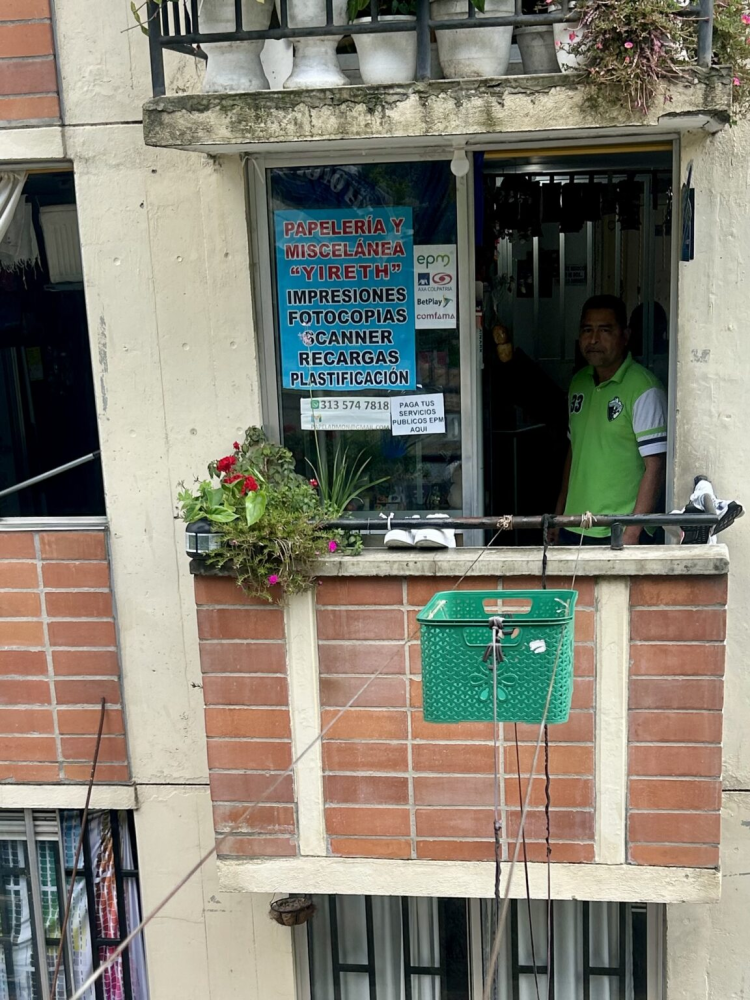The rush by governments to address the global housing crisis with large-scale, financialized, low-cost high-rise apartments will have long-term unintended consequences for people and cities, says a York University researcher who has documented the downsides of a similar housing policy in Colombia.
Luisa Sotomayor, an associate professor in York's Faculty of Environmental & Urban Change, says 20 years after 1,000-unit residential tower compounds started popping up in typically agricultural lands on the outskirts of Colombian cities, many municipalities and low-income residents have mixed feelings about the experiment.

Luisa Sotomayor
"What we can learn from the Colombia experience is that when you're building housing, you need to think long term," said Sotomayor, director of the City Institute at York University. "It's super important to consider planning and housing together and the realities of people's everyday needs, including access to jobs, schools, social services, transportation and infrastructure."
Economic incentives and tax breaks were created in Colombia to encourage developers to build lots of affordable housing quickly; however, the resulting micro apartments in high-density towers were built on cheap land with few services and amenities.
Paradoxically, the country's Social Interest Housing policy has been successful in dramatically boosting the affordable housing supply in just a few years. But Sotomayor and her team of researchers and collaborators at York University and Los Andes University in Bogota, Colombia, are uncovering the longer-term strain it placed on people and local governments.

Emerging high-rise developments juxtaposed with traditional rural lifestyles in San Antonio de Prado, a rural township situated at the southwestern jurisdictional border of Medellin, Colombia. Photo by Luisa Sotomayor.
They found that these master-planned communities were unprepared for the sudden demand for energy, water, transportation, police and fire services. Families required schools, day care, hospitals and long-term care that just wasn't there. They needed jobs nearby and social services.
For many people, buying one of these units was the first time they'd had to manage debt, and they've struggled to keep up the payments. Many families face overcrowding or their cost of living escalated because they couldn't accommodate family members who helped support the household or care for younger children.
People often spend hours travelling to jobs. Others resort to operating businesses out of their units to generate an income, opening small grocery stores, hair salons and even bars in private apartments, which creates noise and conflicts between neighbours. People who could be comfortable in a small space when they were single had no room to grow as they moved through life stages like having children and caring for aging parents.

Informal shop located on the third floor of a residential tower in Ciudadela Nuevo Occidente, Medellín. Photo by Luisa Sotomayor.
For their part, municipalities complain about the high costs associated with delivering services across greater distances, opening up roads to secure water and sewer lines, and providing schools - a municipal responsibility in Colombia. They struggle to keep neighbourhoods safe. The new neighbourhoods needed to be more sustainable and incorporate climate-change considerations to protect residents from extreme indoor heat and flooding risks, leaving residents on their own as they deal with an increasingly uncertain climate future.
In its April 2024 budget, Canada laid out a strategy to unlock 3.87 million new homes by 2031. The government says it is targeting affordability for people who have been priced out of Canada's high-cost housing market, bringing down the costs of home building to produce homes people can afford faster.
Sotomayor said Canada should consider the Colombia example, because there are lessons to be learned.
"There is a very common narrative that if you give the problem to the private sector, the private sector will solve it, and that's not always the case," Sotomayor said.
"In the case of affordable housing, the private sector can build something, but not necessarily what people need in terms of accessible location and services and amenities to carry on with their daily lives, which requires a high diversity of housing options. And in the case of the poorest of the poor, we still need social housing because, for some people, market housing will never be achievable."
Sotomayor's project - on which she collaborates with Lina Brand Correa, an assistant professor in ecological economics in the Faculty of Environmental & Urban Change - is funded through a three-year Insight Grant from the Social Sciences & Humanities Research Council.
Learn more about Sotomayor's vertical peripheries research here.
This story was originally featured in YFile, York University's community newsletter.













